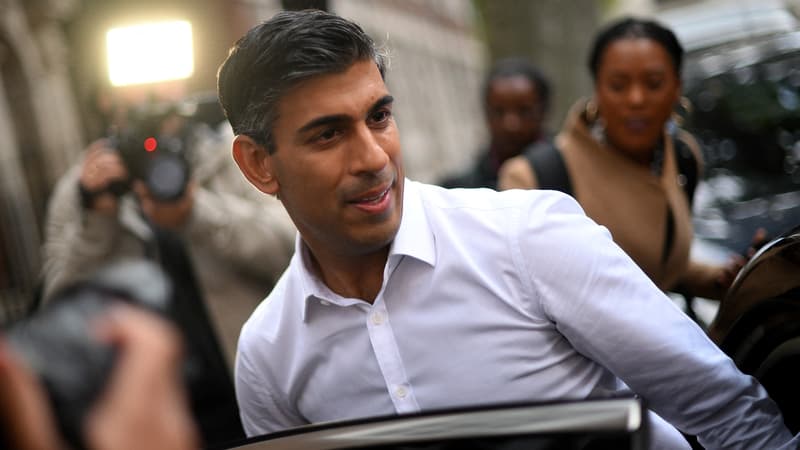Grandson of immigrants of Indian origin with a classic past in the British elite, Rishi Sunak, a very wealthy former banker (from Goldman Sachs) has just been appointed by the British Conservatives to become Prime Minister. The She will therefore succeed Liz Truss, dragged down by her budget choices that have terrified the markets.
Rishi Sunak will govern a country mired in a severe cost of living crisis, with inflation above 10%. But, what will be the main economic orientations of it?
fiscal orthodoxy
The 42-year-old, guardian of budgetary orthodoxy and a workaholic, insists on the need for economic prudence to combat inflation. He had warned Conservatives during this summer’s campaign that Truss’s program was a “fairy tale” and that her huge tax cuts would lead to higher borrowing costs.
Unlike Liz Truss, he displays a budgetary prudence that for a long time didn’t do him much good but now puts him at ease (even if this early Brexiteer gained popularity by doling out billions of pounds in public aid during the Covid pandemic). .
Rishi Sunak thus defends tax increases to bloodlessly finance public services after the pandemic and to limit public debt.
But according to Telegraph, It also intends to lower the minimum personal income tax rate from 20 to 16%, but not before the end of 2029 to ensure that the cuts are financed with growth and not with debt, ”says the British newspaper.
The rest of your program hasn’t really been detailed. The elected official is, as expected, in favor of a state that does not intervene much, leaving the market and free competition to their fate. He spoke out for specific aid for pensioners and the poorest, but maintaining a line of budget seriousness.
Carbon neutrality in 2050
Like most Tories, Sunak also advocates the creation of free zones to stimulate innovation and business creation.
In terms of energy, it points to the kingdom’s energy independence in 2045, with significant investments in wind power (with the end of the ban on building new onshore wind farms), solar and nuclear, while VAT is lowered in this sector, with the goal of achieving carbon neutrality by 2050.
On the post-Brexit management, the former minister in favor of Great Britain leaving the European Union spoke in favor of Liz Truss’s plan to abandon much of the Northern Ireland protocol and certain European legislation that still applies to the other side. of the Canal temporarily.
The future tenant of “10” finally wants an increase in the defense budget to 2.5% of GDP compared to the current 2%.
Source: BFM TV


